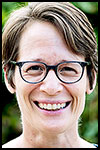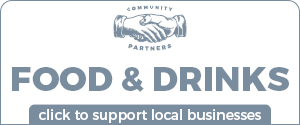Bader: Don't let work restrict choices you make in life
Five years ago, I landed my dream job — director of social responsibility at Amazon.
I lasted just 21 months. I wasn’t getting enough time with my husband and kids, but it wasn’t simply a work-life balance issue. I also felt Seattle wasn’t the right city for me.
I was living there only for work. I had no family there, no community, no civic engagement, no sense of place. It felt as if I were trying to plant myself in the wrong soil.
So I quit.
It was hard giving up my professional identity, not to mention the income. But I had become clear on my priorities: more time with my family and a less hectic, less expensive, more sustainable lifestyle. Work was undermining the life I wanted instead of enabling it.
We shrank our budget and our footprint. We left big city life for a wonderful new community — McMinnville. Here, I do freelance work that doesn’t interfere with my family time.
This was obviously all very interesting to me, but it was only when I started telling people in and outside of work about my lifestyle changes that I realized I wasn’t alone in questioning the role of work in our lives and society.
For many people, work is broken. People all along the economic spectrum are experiencing stress, discrimination and fear about automation. Society’s hopes that the gig economy and higher education would be tickets to happiness and freedom have failed to materialize.
The coronavirus pandemic is highlighting the fact that our system of work does not provide the security we need.
The good news is that there are examples of working differently. My friend Eva Dienel and I have launched a storytelling project reimagining the future of work — “The Life I Want,” found on the web at www.thelifeiwant.co.
Some stories we’re collecting are about people who have changed their individual relationship with work, so that their jobs no longer define their identity, community, location and purpose.
For example:
Kari Bodmer had a successful career as a CPA. But it wasn’t until she saw a bakery for sale, and called her husband’s bluff about wanting to bake bread for a living, that “we were finally completely in control of our destiny,” she told me.
After their adventure as bakery owners, the Bodmers moved to farmland near Carlton, where they’ve been able to indulge their desire to grow things. Bodmer still does executive recruiting, but she and her husband have been able to live as “people who did not just want to be defined by a job.”
Many people are trapped by debt or family obligations, and cannot take big risks with work like the Bodmers. More importantly, shifting your individual relationship with work will help only so much if you’re working in a hostile environment, you’re socially isolated or you’re not receiving the protections that you are entitled to by law.
Beyond having a healthy personal relationship with work, there are three parts of the system that need to function well in order to create a future that works for all: 1) Employers committed to empowering their employees. 2) Communities committed to supporting their members. 3) Governments committed to ensuring fairness and equity for their citizens.
It is no coincidence that these three pieces have emerged as critical in supporting people through the pandemic.
First, the employer: We need employers who are truly working to give employees power and agency, not just novelty perks.
Hagan Hamilton is an insurance provider based in McMinnville. It perennially lands on the annual Oregon Business “100 Best Places to Work” list and has an average staff tenure of nearly nine years.
Employees receive perks like Blue Raeven pies at Thanksgiving. More importantly, they earn competitive pay, great benefits and an ongoing education budget of $750 per year per employee.
Chief Operating Officer Jason John told me, “If you show that genuine care about your staff, they want to help take care of the business as well. There is a return on that investment. That’s not why we do it, but it just works.”
As the pandemic hit, the management team increased scheduled bonuses and paid them early. It also gave all members of the staff additional paid time off.
Second, we need community to live the life we want. Human beings are wired to seek connection, and we are healthier and live longer when we find it.
Joan Drabkin struggled in her first few years in McMinnville in the early 1970s. Homebound with a newborn, she missed the diversity and energy of Southern California.
She started hosting Passover Seders, which soon outgrew her home, moving first to Nick’s Café and then the community center. “It was a wonderful way to build community,” she told me.
Drabkin’s proactive outreach continued for the subsequent 50 years, taking multiple forms. In February of this year, Mayor Scott Hill honored her as a “Pillar of the Community.”
Finally, government is critical for providing basic protections like healthcare and anti-discrimination laws. It is also charged with proactively thinking through what we need to thrive, such as sound infrastructure and a livable planet.
Oregon recently became the first state requiring employers to give shift workers advance notice of their schedules, a step in the right direction. As reported in these pages, local leaders are holding regular online meetings to meet with each other and residents to share concerns and resources throughout the COVID-19 crisis.
Living the life you want is not just a matter of privilege — a nice-to-have for the few who can afford it. Nor should we strive to be happy solely to become more productive at work. There is inherent worth to happiness even if it doesn’t improve a bottom line.
But fixing work isn’t just about being happy.
As you take that first step to fix work — and the next and the next, moving ever closer to living the life you want — you can begin to ask yourself, “What kind of community do I want?” And then, “What kind of world do I want?”
If we can fix work, we can fix so much more.
Now is the time, as we restart our lives, communities and businesses in the wake of the coronavirus, to create the world we want to see. Let’s imagine a world where work enables the lives we want instead of determining the lives we have, then build that world together.









Comments